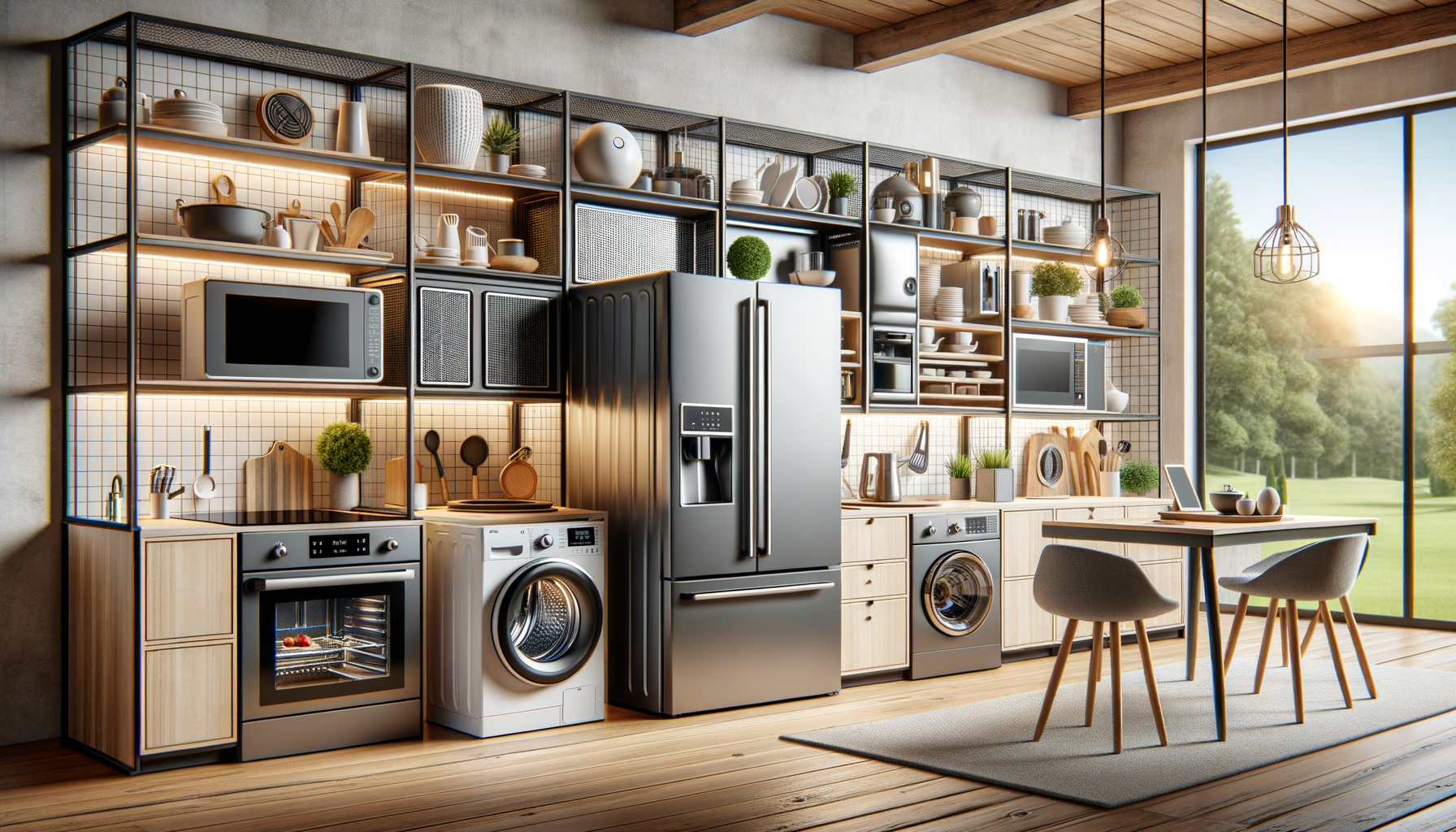The Modern Home: Navigating the World of Home Appliances
Explore the evolving landscape of home appliances, where innovation meets everyday convenience.

The Evolution of Home Appliances
Home appliances have come a long way from their rudimentary beginnings. In the early 20th century, the introduction of electric power revolutionized household chores, making them easier and less time-consuming. Appliances like electric irons, kettles, and vacuum cleaners began to appear in homes, transforming domestic life. Fast forward to the 21st century, and we see a dramatic shift towards smart technology. Today’s appliances are not just about functionality; they are about integration, efficiency, and sustainability.
Modern appliances are designed to be more energy-efficient, reducing the carbon footprint of households. Many are equipped with smart technology, allowing users to control them remotely via smartphones or voice-activated assistants. This evolution not only enhances convenience but also aligns with global efforts to promote environmental sustainability.
Key advancements in technology include the development of smart refrigerators that can monitor food freshness, washing machines that adjust water usage based on load size, and ovens that can be preheated remotely. These innovations reflect a growing trend towards creating a connected home environment where appliances communicate with each other to optimize performance and energy use.
Smart Kitchens: The Heart of the Modern Home
The kitchen is often considered the heart of the home, and with the advent of smart technology, it has become a hub of innovation. Smart kitchens are equipped with appliances that offer convenience, efficiency, and enhanced functionality. From smart refrigerators that notify you when you’re out of milk to ovens that can be controlled with a smartphone, the possibilities are endless.
One of the standout features of a smart kitchen is the integration of appliances into a cohesive system. This means that your coffee maker can start brewing when your alarm goes off, or your oven can preheat itself as you head home from work. Such integration not only saves time but also enhances the cooking experience.
Additionally, many smart kitchen appliances are designed with sustainability in mind. Energy-efficient models reduce electricity consumption, while smart dishwashers use sensors to determine the optimal amount of water needed for each load. These advancements not only benefit the environment but also result in cost savings for homeowners.
Energy Efficiency and Sustainability in Home Appliances
As global awareness of environmental issues grows, the demand for energy-efficient home appliances has surged. Manufacturers are responding by designing products that consume less energy and water, thereby reducing the overall environmental impact. Energy-efficient appliances are rated by various standards, such as Energy Star, which helps consumers identify products that meet specific efficiency criteria.
Energy-efficient refrigerators, for example, use advanced insulation and compressors to minimize energy consumption. Similarly, modern washing machines are equipped with sensors that adjust water levels based on the load size, significantly reducing water usage. These innovations not only help conserve resources but also lower utility bills, offering long-term savings to consumers.
Moreover, the concept of sustainability extends beyond energy efficiency. Many manufacturers are now focusing on using recyclable materials and reducing waste during production. This holistic approach ensures that appliances are not only efficient during their lifespan but also environmentally friendly from production to disposal.
The Role of Artificial Intelligence in Home Appliances
Artificial Intelligence (AI) is playing an increasingly significant role in the development of home appliances. AI-powered devices offer a level of customization and automation that was previously unimaginable. For instance, AI-enabled washing machines can learn user preferences and suggest optimal washing cycles based on past usage patterns.
In the kitchen, AI technology is being used to create smart ovens that can recognize the type of food being cooked and adjust cooking times and temperatures accordingly. This not only ensures perfectly cooked meals but also reduces the likelihood of overcooking and food waste.
AI also enhances the user experience by providing predictive maintenance alerts. Appliances can detect potential issues before they become major problems, allowing for timely repairs and extending the lifespan of the device. This proactive approach reduces downtime and ensures that appliances operate at peak efficiency.
Future Trends in Home Appliances
The future of home appliances is poised to be even more exciting, with trends pointing towards greater connectivity, automation, and personalization. The Internet of Things (IoT) is set to play a crucial role, enabling appliances to communicate with each other and create a fully integrated smart home ecosystem.
Voice control is another trend gaining traction, allowing users to operate appliances using simple voice commands. This hands-free approach enhances convenience, particularly in the kitchen where hands are often occupied.
Furthermore, the integration of renewable energy sources, such as solar panels, with home appliances is expected to become more common. This will not only reduce reliance on traditional power sources but also promote sustainable living. As technology continues to evolve, home appliances will undoubtedly become smarter, more efficient, and more attuned to the needs of modern consumers.